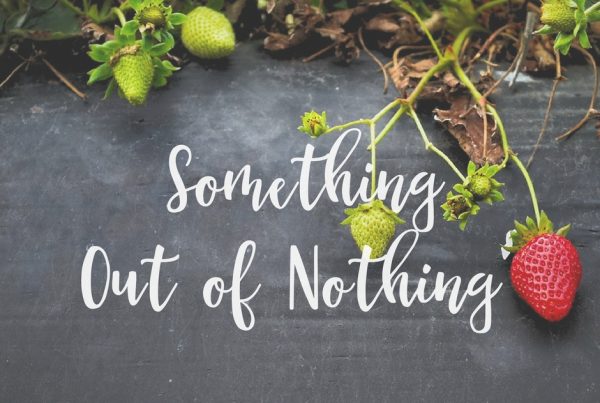A few weeks ago my son did something he had never done before.
In our kitchen there are a few cabinet doors that are not yet baby-proofed. Of course, my son knows exactly which cabinets they are, and he targets them every morning. Normally I notice when he is headed toward a cabinet and I brace it shut with my foot. If he has already opened the door, I carefully remove his tiny fingers from harm’s way and then I close it.
Most days, this routine is enough to deter him. But not this particular day. This day, he was determined to access the cabinet beside our oven. He desperately wanted the glass bowls sitting on the shelf inside it, so he resorted to something new when I blocked his entry:
He screamed and threw his body on the ground. Face down, arms and legs sprawled out in total despair, he repeatedly banged his little head against the hard wood floor.
This, my friends, was a tantrum.
I scooped him up and carried him into his play area, where I carefully placed him on the soft carpeted floor. Immediately, he resumed the tantrum. Once again, he flailed himself flat on the ground and banged his head on the carpet, over and over and over. Thud. Thud. Thud.
Like the good mother that I am, I stepped back and let it happen. He’s 14 months old so he can’t be reasoned with, and he can’t hurt himself on the carpet, so I leaned back and wished him well. Bang away, young sir. Bang away.
As I sat there and watched the tantrum play out, it didn’t bother me at all. I wasn’t concerned or upset. Instead, I thought about a class I once took on child development, where I learned that the emotion regulation part of the brain does not develop fully until your 20’s. That’s why children react in CRAZY ways when they’re upset or mad. It’s not because they’re ridiculously selfish or melodramatic (or at least, not entirely), but because they’re still learning how to process their emotions in an appropriate way.
My son’s tantrum was evidence of that development-in-process. His inability to access a kitchen cabinet had produced a full on meltdown. If an adult were to do this, there would be something seriously wrong. But a baby? Totally normal.
That’s why my son’s behavior didn’t upset me or disappoint me. It was appropriate behavior for a baby whose brain is still growing. If he’s throwing these tantrums at 16 years of age we’ll have a different conversation. But for now, I’m not surprised and I’m not disappointed. That’s just where he is right now.
As I sat there that morning, watching my son act out, and loving him in spite of it, I realized I’d been given a glimpse into how God views me, His daughter. Just as I love my son in his human immaturity, God loves me in my broken humanity. And just as I am not content to leave my son in his immaturity, it is the same with God.
God knows I’m not perfect. He knows I am not Him. God knows I am human, and He expects me to act like a human. And yet, God is not content to abandon me in my broken humanity. Just as I accept my son’s immaturity, I will also discipline and challenge him so that He grows out of it. Likewise, God yearns to refine me and help me grow. Out of His love, He challenges and disciplines me. He protects me. And He does so out of the same unfathomable love that any parent has for her child. Everything He does, even the hard things, is out of love.
Sure, there are times when I disappoint God, just as my son will surely disappoint me. But that’s the funny thing about a parent’s love. It can hold disappointment and abounding mercy in the exact same hand. A child’s disobedience cannot move a parent’s love.
Until I became a parent, it was hard to grasp this unconditional love in the face of my sin. It was hard to comprehend the grace. How could God hate my sin but not hate me?
But now I get it. I hate when my son does anything to hurt himself or hurt others, but I could never hate him. Never.
In that way, becoming a parent has reshaped my imagination. Now, I envision God looking upon me with the same loving, quick-to-forgive grace with which I look upon my son.
Matthew 7:9-11 tells us,
“Or which one of you, if his son asks him for bread, will give him a stone? Or if he asks for a fish, will give him a serpent? If you then, who are evil, know how to give good gifts to your children, how much more will your Father who is in heaven give good things to those who ask him!”
This verse is a powerful reminder: as much as I love my child, God loves me infinitely more. The love I have for my son is only a shadow of the love God demonstrated for me on the cross. And what good news that is! I love my son to the edge of the earth and back. But God? His fatherly love spans eternity.
How great the Father’s love for us. And how good of Him to give us this glimpse into His loving kindness, through the experience of being a parent like Him.







What you describe has been my experience exactly. I expected motherhood to be a spiritually dry season, but it has been unexpectedly rich and wonderful as year by year, God gives me a lens to see myself as His child while I watch my own children. Even when they are sleeping (http://bronlea.com/2013/08/21/while-you-were-sleeping/) it is a precious, precious truth. Discovering myself as Gods child has been on of the biggest blessings of having children.
Yes! I feel the same way!